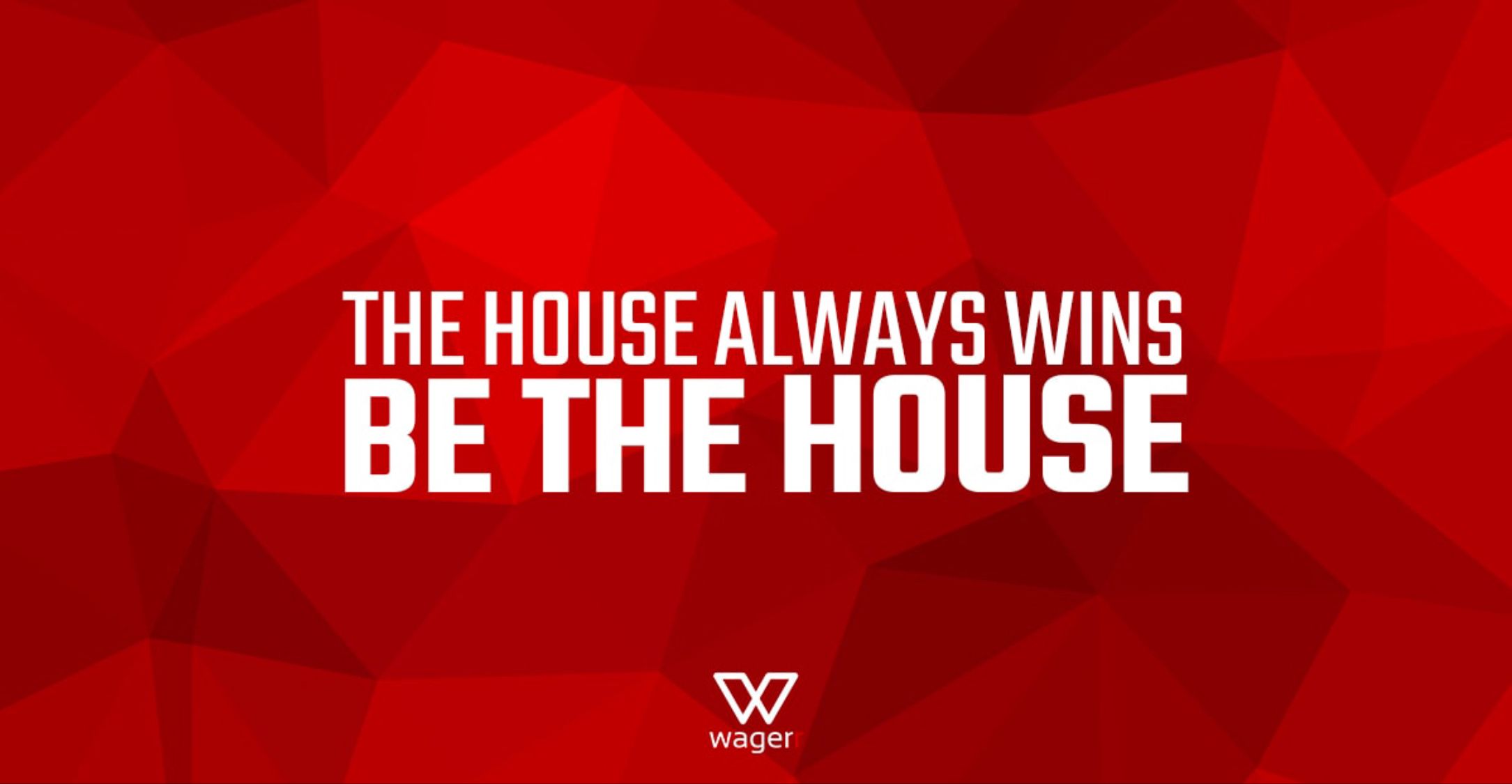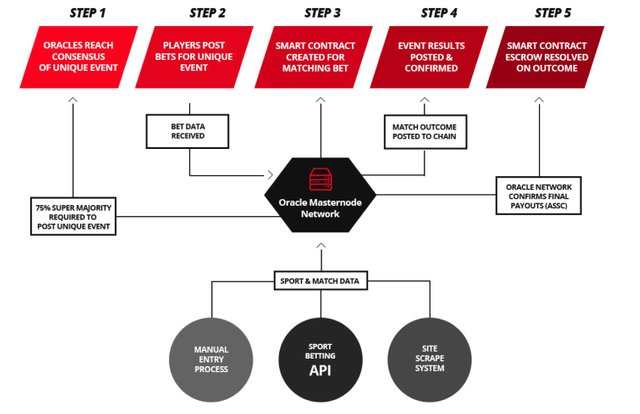Oracle Masternodes on the Wagerr Network Could Become One of the Hottest Properties in Cryptocurrency in 2018
Wagerr is a revolutionary decentralized sportsbook that brings trust-less sports betting to the entire world. Using a decentralized blockchain, Wagerr will elevate the sports betting industry, and usher in a new trust-less era of fairness, availability and security. The Wagerr main and test networks will launch concurrently on Jan 15th, 2018.
What is an Oracle Masternode?
Typical cryptocurrency masternodes are nodes running the same wallet software on the same blockchain to provide extra services to the network, usually fulfilling the roles of transaction verification and governance.
A Wagerr Oracle Masternode fulfils these roles, and much more. Oracles act as consensus agents that retrieve real world sporting event data, and records the outcomes on the blockchain. This is then used by the network to determine winning bets. They also act as masternodes in that they exclusively forge betting smart contracts backed by their collateral. They form a strong second tier network backbone that efficiently processes bets and events.
A strong second tier network ensures distributed consensus and reliable operation. Each betting type has its own unique type of transaction, and by having bets take place on the second tier of the network, this allows us to ensure scale when it comes to creating consensus for determining winners and losers.
Oracles not only collect 50% of the betting fees for their work, but also win a portion of the fixed periodic block award. What’s more, the Wagerr tokens earned can increase in value as the Wagerr economy grows. Their status is so prestigious that the number of Oracle Masternodes is limited to only 2,000. This ensures fair compensation for their unique type of work.
What Does an Oracle Masternode Do and How Does it Function?
Oracle Masternodes’ primary function is to regularly post new upcoming events in the sporting world so users can bet on their outcomes. Once events are finished, Oracles post the outcomes to allow for all bets to be resolved.
Oracle Masternodes form a second layer of the Wagerr network and function as consensus agents, forging betting contracts, retrieving sporting events outcome data, and consensually validating results, which are able to execute contractual pay-outs.
Wagerr is dependent on Oracle Masternodes to accurately report real match data, allowing for bets to be published and resolved correctly. There are multiple ways Oracle Masternodes can gather sports information. Regardless of the source, the information must be formatted correctly to ensure the publication reaches consensus with the rest of the network.
There are three ways to gather sports data:
- Sports betting APIs
- Sports website scrapes
- Manual entry
To ensure not all Oracles are pulling data from the same source, Wagerr requires the Oracle to report its data source to the network, and if required the network can force a limit on each source.
Event outcome is confirmed only after 75% of all Oracles achieve consensus on the results. Once the outcome is confirmed and published, the Wagerr network recognizes fulfilment of the contract, and the winning user is paid out accordingly.
Activating an Oracle is the process by which an individual chooses to promote their node, engage in a 30-day contract of service, and become a consensus agent. This contract ensures that owners must maintain a level of service, and agree to lock collateralized tokens to a simple smart contract which initiates a timed release.
The requirements for running a Wagerr Oracle Masternode are as follows:
- 25k Wagerr tokens collateralised over a 30-day service contract
- Uptime over 99% (measured weekly)
- Retrieve and input sporting event outcomes data
- A public IP address with a forced network port number
- Bandwidth to accommodate the total number of API calls
Causes for demotion of a Wagerr Oracle Masternode are as follows:
- Network connectivity uptime (Less than a 99% weekly average)
- Less than 50% participation on submission in all leagues
- Results submission inaccuracy
- Non-renewal of 30-day collateral contract
When all 2,000 Oracle slots are filled, anyone wishing to operate an Oracle Masternode will have to join a queue, and will be awarded a slot as they become available, on a first come, first served basis.
A visual representation of a typical bet on the Wagerr network is embedded below, along with steps detailing an Oracle’s function during each stage of the process.
Step 1 – Oracles actively searching for new events inside supported leagues, always trying to build consensus for upcoming events. Consensus for a new event requires a supermajority; From the 2000 possible Oracle Masternodes, 75% need to report the same event, defined by the event’s UTC time, and their unique identifying codes.
Step 2 – Users can view published events, and place bets against existing bets, or set a new line and match amount (for a take or bet partner to fill). Once betting pairs are determined to be complementary, a smart contact can be created and initiated on the Wagerr blockchain.
Step 3 – Now that a smart contract is initiated, half of the fees within that bet contract are distributed and burned. (48% destroyed, 2% to Wagerr development fund) The Oracle Masternodes create transactions dependent on the two opposing bets’ predicted outcome.
Step 4 – After the event concludes, the network relies on supermajority consensus to determine the outcome of the event. This posting allows the contract to be signalled for resolution.
Step 5 – Once the bet has been signalled for resolution, the winning bets are processed and paid out accordingly. Once the smart contract is resolved, the oracle who processes the bet receives their portion of the fee.
Why Would I Want an Oracle Masternode?
Oracle Masternodes offer the most incentive to investors because they win ongoing staking awards, while also earning fees for forging betting contracts, and updating real life event outcomes on the blockchain. In the Wagerr system, the Oracle Masternode gives you the opportunity to be the house.
The system of rewards incentivises Oracle’s crucial role as consensus agents, retrieving and consensually validating sporting event outcomes, arguably the most crucial role on a sports betting blockchain. Static block rewards incentivise node operators to hold Wagerr tokens and operate wallets with 24/7 connectivity. Failure to consistently retrieve and post data that aligns with the consensus results in deactivation.
Because the rewards for operating Oracle Masternodes are predictably far greater in the long run than liquidating them, investors will be loath to give up the residual income they generate. Masternode and staking rewards keep coins in active use in the network, and keeps their holders from adding sell pressure to the market.
If Wagerr can obtain just 1% of the $400 billion that is illegally wagered on sports in the United States alone each year, according to NBA commissioner Adam Silver, each Oracle Masternode would gain over $40,000 in fees each year (assuming a full masternode pool and 4% multi-user betting fee).
The Future
Oracle Masternodes will become vehicles of blockchain governance. Since no one has more invested in the wellbeing of the Wagerr network, Oracle operators will exercise governance through the distributed network of Oracle Masternodes.
Once the distributed network is established and stable, the original Wagerr development team will fully relinquish control of the github and distribute the role of governance to the network. The Wagerr network achieves decentralized governance through a voting system in which each Oracle Masternode holds a vote. This second tier of the network extends the principles of proof of stake to the most heavily invested Oracle Masternodes which perform the essential functions of the sports betting blockchain.
Types of governance required includes resolving pay-out disputes, managing the penalisation and demotion of underperforming nodes, and perhaps most importantly, voting.
A decentralized voting mechanism within the Wagerr wallet allows network and protocol changes to be proposed. Voting will also allow proposals for future features or functions to be added to the ecosystem. Oracles will even be able to propose and vote on major fixes or proposed economic changes like increasing the maximum Oracle count, fees’ structure and raising or lowering block rewards to name a few. From there, the Oracle Masternodes vote on the proposal. Each change or modification passed with two thirds majority Is deployed to the main network automatically.
Oracle Masternodes will perform many pivotal roles for the Wagerr network. From providing fixtures and resulting, forging smart contracts and ensuring pay-outs, to voting on network and protocol changes and the evolution of the platform. They will be rewarded in kind, receiving not only block awards but 50% of all betting fees.
At a limited number of 2,000 Oracle Masternodes, sharing 50% of the betting fees from the only truly global sportsbook in the world, you may be looking at one of the hottest properties in all of cryptocurrency in 2018 and in years to come.
Detailed information on how to set up and activate your Oracle Masternode will be available on launch of the main and test networks on Jan 15th, 2018.


price will moon
YES CANT WAIT FOR THE LAUNCH!!!!!!!!!!!
I am so eager to run an Oracle masternode for you guys... long time supporter here ever since the ICO. But I'm afraid those 25k coins are way beyond my price level :(
I have my 25k wagerr ready to go! Super excited to be apart of this project from the beginnnig!
holding over 35k
Sounds like a very interesting project. Being "the House" on a global betting platform.
But what is the status of the project now?